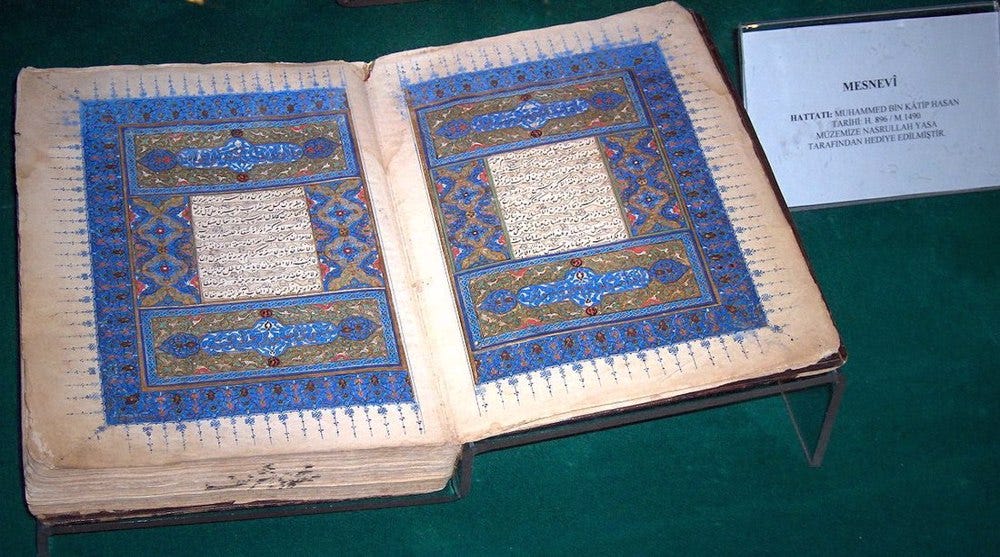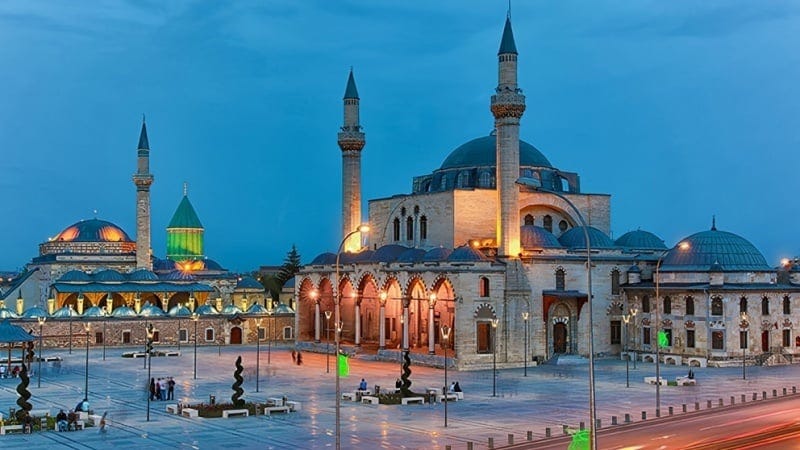Why Rumi’s Works Cannot Be Separated from Islamic Heritage
Reclaiming the Sufi Poet’s Spiritual Roots in an Age of Misinterpretation
The timeless poetry of Jalaluddin Rumi, the 13th-century Persian mystic and scholar, continues to captivate readers worldwide. Yet, as his works gain global popularity, some attempts have been made to divorce his teachings from their Islamic roots—a distortion that overlooks the essence of his spiritual legacy.
Rumi, also known as Mawlana (our master), was a devout Muslim whose worldview was deeply shaped by the Quran and the teachings of the Prophet Muhammad (S). His magnum opus, the Masnavi, is often described as the "Quran in Persian," reflecting profound Islamic theology, Sufi wisdom, and divine love rooted in tawhid (the oneness of God).
Rumi’s Islamic Foundation
Born in Balkh (modern-day Afghanistan) and later settling in Konya (present-day Turkey), Rumi was an Islamic jurist and theologian before becoming a Sufi poet. His works are saturated with Quranic references, Hadith, and Islamic philosophy. His famous verses on love and unity are not abstract concepts but expressions of ishq-e-haqiqi (divine love) and submission to Allah.
For instance, in the Masnavi, Rumi writes:
"I am the servant of the Quran as long as I live,
And I am the dust on the path of Muhammad, the Chosen One."
This declaration leaves no doubt about his devotion to Islam.
Western Appropriation vs. Authentic Understanding
In recent decades, Western interpretations have often secularized Rumi, framing him as a universal spiritual figure disconnected from Islam. Translators and commentators sometimes omit or soften Islamic references, reducing his teachings to self-help mantras or romantic poetry.
However, scholars argue that stripping Rumi’s works of their Islamic context dilutes their true meaning. His poetry is inseparable from the framework of Sufism—an Islamic tradition emphasizing inner purification and closeness to God.
Rumi’s Enduring Islamic Legacy
From Iran to Turkey, Central Asia to the Indian subcontinent, Rumi is revered as an Islamic scholar and saint. His tomb in Konya remains a pilgrimage site where Muslims recite the Quran and engage in dhikr (remembrance of God).
To appreciate Rumi fully, one must engage with his works as part of the Islamic intellectual and spiritual tradition. His message of love was not a rejection of religious discipline but a transcendence rooted in Islamic mysticism.
Conclusion
Rumi’s universal appeal does not negate his Islamic identity. His poetry is a bridge between the human soul and divine truth—a truth he found in Islam. To separate Rumi from his faith is to misunderstand him entirely. As the world celebrates his wisdom, it is crucial to honor the tradition that shaped him: the rich, spiritual heritage of Islam.
"The religion of Love is apart from all religions;
For lovers, the only religion and creed is God." —Rumi
Yet even this famous verse does not reject Islam but elevates divine love as the core of his faith. Rumi’s legacy remains eternally intertwined with the teachings of the Quran and the path of the Prophet (S).
Source: PressTv




